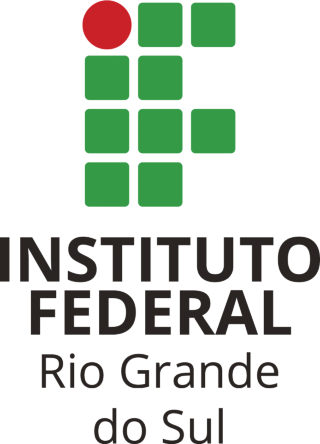| dc.contributor.advisor |
Saraiva, Ana Lúcia Olegário |
pt_BR |
| dc.contributor.author |
Mendes, Bruno Fernandes |
pt_BR |
| dc.date.accessioned |
2024-02-22T18:24:30Z |
pt_BR |
| dc.date.available |
2024-02-22T18:24:30Z |
pt_BR |
| dc.date.issued |
2023 |
pt_BR |
| dc.identifier.uri |
https://dspace.ifrs.edu.br/xmlui/handle/123456789/1038 |
pt_BR |
| dc.description.abstract |
A proposta deste estudo visa a reflexão sobre o fenômeno do Turismo, sua relação com a
educação e sua inserção na Educação Básica enquanto componente curricular nas redes municipais de
ensino do Litoral Norte do Rio Grande do Sul. A investigação se caracteriza como uma pesquisa de
ordem qualitativa, de caráter exploratório. O percurso metodológico contempla a revisão bibliográfica
de estudos referentes à temática, a pesquisa documental com base nas legislações pertinentes à
Educação Básica, referenciais curriculares e o Plano de Trabalho Simplificado do Ensino Fundamental
Anos Finais da disciplina de Turismo; por fim, o levantamento de dados junto às Secretarias
Municipais de Educação da região para identificar a oferta da disciplina de Turismo na Educação
Básica. Como resultados, identificou-se que, apenas um, dos vinte e um municípios – Capão da Canoa,
contempla o ensino de Turismo como componente curricular na rede municipal de ensino, tornando-se
objeto deste estudo. Percebe-se que a atividade turística está presente no Litoral Norte do Rio Grande
do Sul, característica evidenciada pelo significativo fluxo populacional em alta temporada (dezembro
a março), destacando-se como um importante eixo estratégico de desenvolvimento para o território.
Além disso, a pesquisa evidenciou a necessidade do fortalecimento de uma educação formal em
Turismo, principalmente nos currículos da Educação Básica. Nesta perspectiva, a inclusão da temática
do Turismo como componente curricular nos sistemas educacionais do Litoral, não pretende apenas
formar profissionais qualificados para atuarem no setor, mas sim, proporcionar aos estudantes e a
população local, uma compreensão ampla do fenômeno turístico, tornando-os críticos sobre o meio em
que vivem, levando-se em conta toda a sua especificidade e historicidade. Ainda, possibilita somar
esforços na busca de soluções para os problemas socioambientais enfrentados pelo território, romper
com a sazonalidade fortemente presente e qualificar a oferta turística. |
pt_BR |
| dc.description.abstract |
The purpose of this study is to reflect on the phenomenon of tourism, its relationship with
education and its inclusion in basic education as a curricular component in the municipal schools of
the North Coast of Rio Grande do Sul. The investigation is characterized as qualitative, exploratory
research. The methodological approach includes a bibliographical review of studies on the subject,
documentary research based on the legislation pertaining to Basic Education, curricular references and
the Simplified Work Plan for the Final Years of Primary Education for the subject of Tourism; finally,
a survey of data from the Municipal Education Departments in the region to identify the provision of
the subject of Tourism in Basic Education. The results showed that only one of the twenty-one
municipalities - Capão da Canoa - includes tourism teaching as a curricular component in the
municipal education network, making it the subject of this study.It can be seen that tourism is present
on the North Coast of Rio Grande do Sul, a characteristic evidenced by the significant flow of people
in high season (December to March), making it an important strategic axis of development for the
territory. In addition, the research highlighted the need to strengthen formal tourism education,
especially in primary school curricula. From this perspective, the inclusion of tourism as a curricular
component in the educational systems of the Litoral is not only intended to train qualified
professionals to work in the sector, but also to provide students and the local population with a broad
understanding of the tourism phenomenon, making them critical of the environment in which they
live, taking into account all its specificity and historicity. It also makes it possible to join forces in the
search for solutions to the socio-environmental problems faced by the territory, to break with the
seasonality that is strongly present and to qualify the tourist offer. |
en |
| dc.format.mimetype |
application/pdf |
pt_BR |
| dc.language.iso |
por |
pt_BR |
| dc.rights |
Open Access |
en |
| dc.subject |
Turismo |
pt_BR |
| dc.subject |
Educação básica |
pt_BR |
| dc.title |
Reflexões sobre a inserção do ensino em Turismo na educação básica do Litoral Norte do Rio Grande do Sul |
pt_BR |
| dc.type |
Trabalho de conclusão de especialização |
pt_BR |
| dc.degree.grantor |
Instituto Federal de Educação, Ciência e Tecnologia do Rio Grande do Sul |
pt_BR |
| dc.degree.level |
Especialização |
pt_BR |
| dc.degree.local |
Osório, BR-RS |
pt_BR |
| dc.degree.department |
Campus Osório |
pt_BR |
| dc.degree.specialization |
Especialização em Educação Básica e Profissional |
pt_BR |



